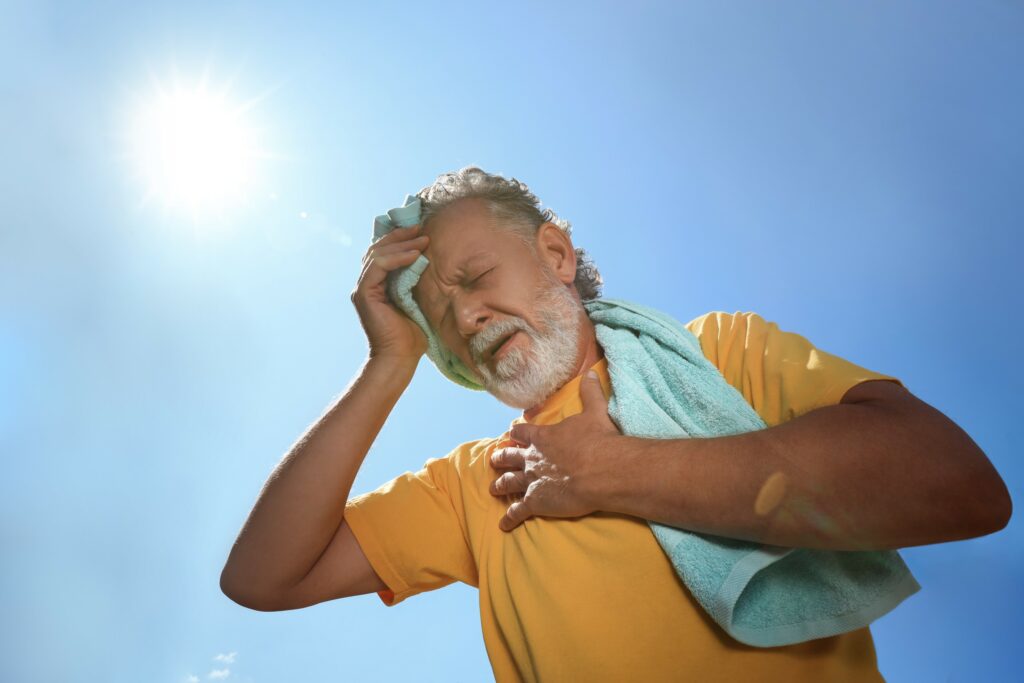
Heavy Rain, Flooding, and Chance of Severe Weather Staring Down the Southern U.S.
January 22, 2024
Posted: July 22, 2023 10:51 am





The rising temperatures across the U.S. have sent thousands of Americans to emergency rooms seeking care for a variety of heat-related illnesses. Here is a look into what health care professionals are dealing with as the mercury continues to soar.
Extreme heat is no joke. Although most people associate hurricanes and tornadoes with mass fatalities, extreme heat actually kills more people on a global scale each year than any other natural disaster. A lack of media attention on heat waves translates to less awareness about the dangers of scorching heat.
Health care experts estimate that extreme heat is associated with at least two dozen causes of death. These associations include heatstroke, dehydration, suicide, and drowning.
The most common conditions seen by medical professionals that are the result of high temperatures are heat exhaustion and heat stroke. During an event of heat exhaustion, excessive sweating causes the body to lose crucial water or salt. As the temperature increases outside, the human body finds it more difficult to sweat effectively and efficiently.
Dehydration is also linked to heat exhaustion. This is because the body does not have the right amount of electrolytes and water circulating for optimal health.
A person is more at risk of heat exhaustion if they have underlying medical issues, including heart disease, kidney failure, or high blood pressure. In addition, some types of medication can also increase the risk of heat exhaustion, particularly in the elderly populations.
The symptoms of heat exhaustion include dizziness, excessive thirst, headache, nausea, and elevated body temperatures. The illness is also likely to present as extreme fatigue in children. While most cases of heat exhaustion can be treated at home with cold showers and adequate intakes of water and electrolytes, it is also important to recognize when to seek professional treatment.
Once at the hospital, a patient suffering from heat exhaustion will likely be treated with IV fluids to replenish what has been lost quickly. The patient will also undergo tests to determine the function of the major organs.
Heat exhaustion can turn into the deadly condition of heat stroke if not treated properly.

During a heat stroke event, the body’s internal temperature accelerates quickly because of a lack of sweat. It can take just minutes for the natural cooling mechanism of sweating to fail, sending a person into a state of confusion. Permanent organ damage is one of the most serious consequences of this life-threatening event.
It is important to note that unlike heat exhaustion, you cannot treat heat stroke at home. You must seek medical attention if you suspect that somebody is suffering from this condition.
Doctors will typically treat heat stroke patients by putting them on ice and cooling them with a fan and cool mist. Hospitals without access to bathtubs often have to get creative in how they submerse patients in ice, using items such as body bags to prevent spills and to cool the patient as quickly as possible. Another technique is to inject cold IV fluids into the patient.
Medical experts are particularly concerned when a patient displays an internal body temperature of over 105 degrees. This is the threshold in which permanent brain damage can occur.
The ongoing heat wave in Arizona has proven to be especially dangerous. Over a dozen fatalities have already been attributed to the extreme heat that has gripped the region in recent weeks. Hospitals have become overwhelmed with the number of people seeking treatment for heat-related illnesses with some medical administrators saying that it is the busiest that it has been since the height of the pandemic.
The good news is that you are not powerless when it comes to keeping yourself safe and healthy during a heat wave. In addition to spending as much time as possible in cool environments, you should avoid being outside during the peak heating hours. Wearing loose-fitting clothing and being diligent about staying hydrated are also prudent practices.
Lastly, local health officials are continuing to remind citizens to be mindful of the vulnerable populations. Checking in on your elderly neighbors or other people in your orbit who may be more susceptible to heat-related illness could save a life.
Did you find this content useful? Feel free to bookmark or to post to your timeline for reference later.

January 21, 2024

January 19, 2024

January 18, 2024